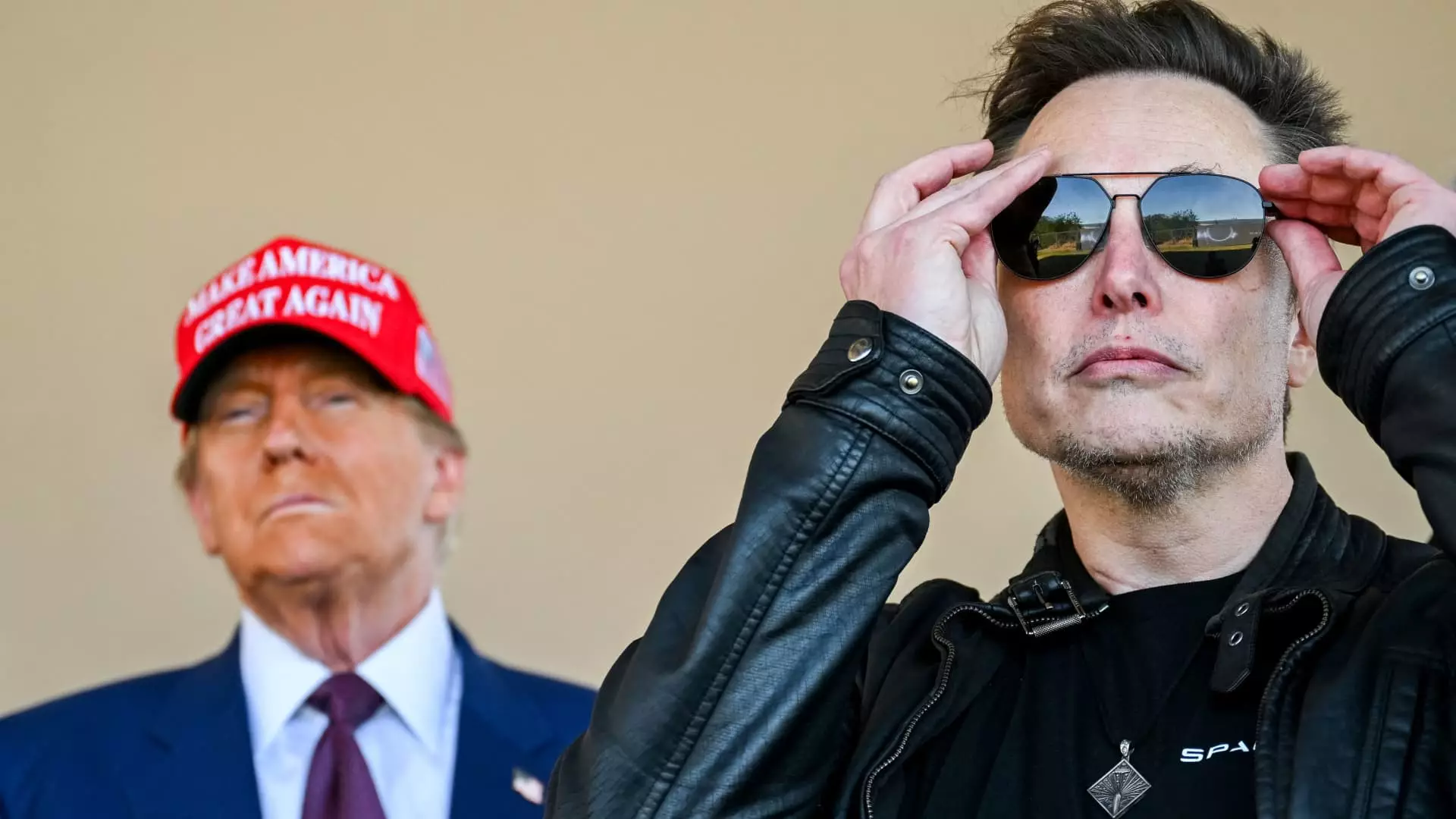Elon Musk has established an extensive business empire that is increasingly impacting various sectors including automotive, technology, and space exploration. His major companies, such as Tesla, SpaceX, Neuralink, Boring Company, and the newly formed AI company xAI, reflect a multifaceted approach to innovation that bears significant implications for governmental interactions and regulations. Musk is not merely an entrepreneur; he has positioned himself as a pivotal player in the industries that intertwine with government needs and initiatives.
SpaceX stands out as a prime example of how Musk’s ventures capitalize on government contracts. Having secured over $19 billion from federal contracts, the company is poised to receive even more under favorable political conditions. Analysts predict that with an administration sympathetic to Musk’s interests, such as a potential future Trump presidency, the influx of lucrative contracts could solidify SpaceX’s financial security for years. This reliance on government contracts underscores a fascinating paradox: while Musk often critiques governmental restraints on innovation, he simultaneously benefits substantially from regulatory frameworks that enable his companies to thrive.
The recent formation of the Department of Government Efficiency (DOGE), co-led by Musk and political figure Vivek Ramaswamy, marks a strategic movement towards deregulation. Their agenda aims to streamline governmental operations through reducing unnecessary regulations, administrative workload, and operational costs. This initiative sparks a key discussion: can the goals of private business align rationally with the missions of public governance? By proposing serious reforms and advocating for audits of government agencies, Musk and Ramaswamy position themselves as reformers seeking efficiency, albeit with motives that might primarily serve Musk’s interests.
The political landscape is changing, and Musk’s close ties to government figures could yield significant advantages for his enterprises. CNBC technology reporter Lora Kolodny emphasized that the principal benefit Musk’s companies could derive from a Trump administration would stem from diminished oversight and deregulation. While this could promote greater efficiency and innovation, it raises ethical questions about the influence of powerful business leaders on public policy. The potential for conflicts of interest becomes apparent, as regulatory bodies could be compromised in their oversight functions.
As Musk continues to utilize both his technological capabilities and political influence to reshape industries, the implications are twofold. On one hand, deregulation and government efficiency can foster a ripe environment for innovation and entrepreneurial growth. On the other hand, the risks of exploitation and unbalanced power dynamics present significant challenges for ethical governance. The intersection of Musk’s ambitious agenda and governmental policy suggests a future where innovation may run unabated, but not without rigorous scrutiny and debate over the ethical ramifications of such advancements. As the world watches closely, it will be crucial to assess whether Musk’s vision aligns with the greater good or merely serves to enhance personal and corporate gain.

